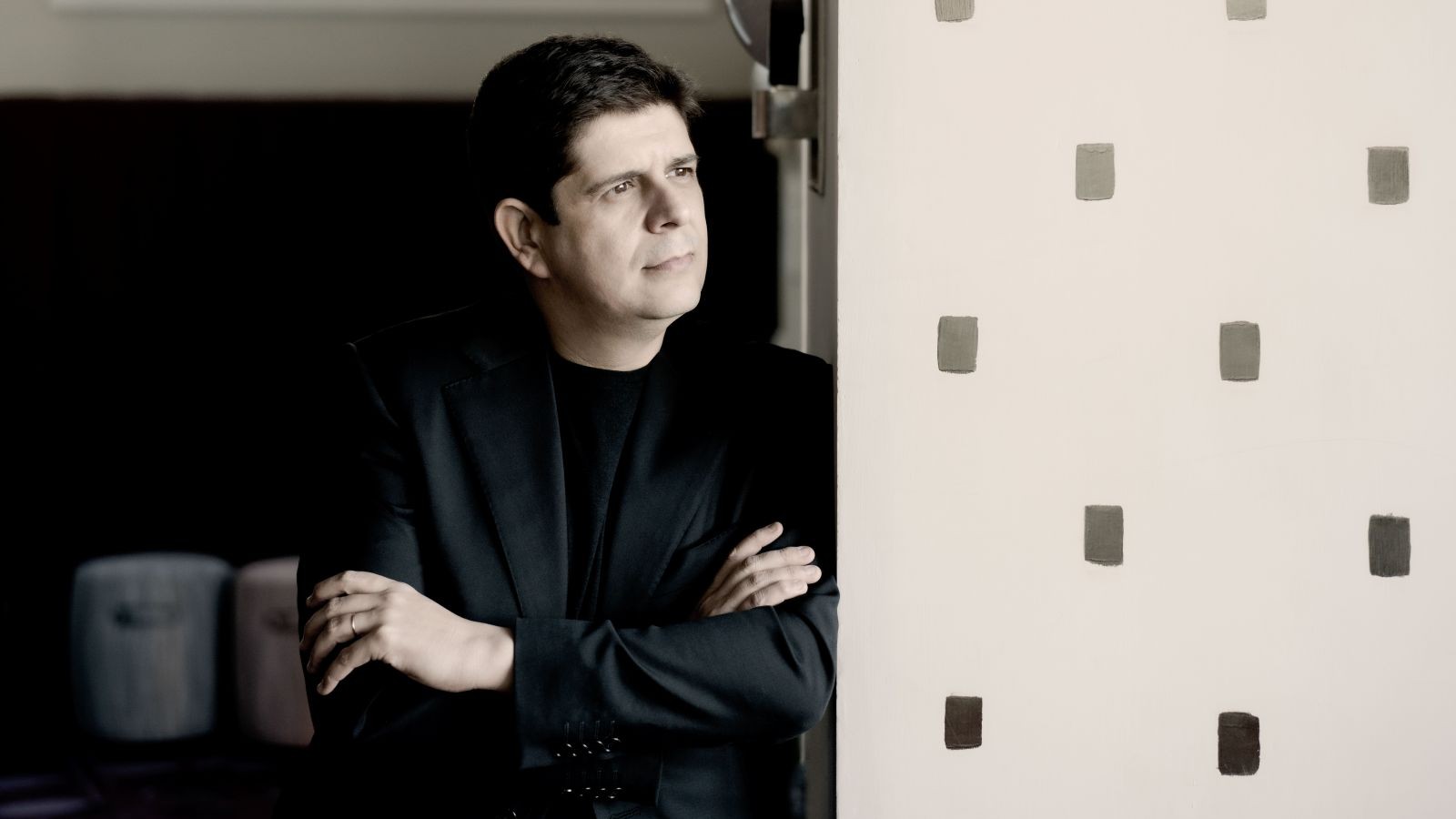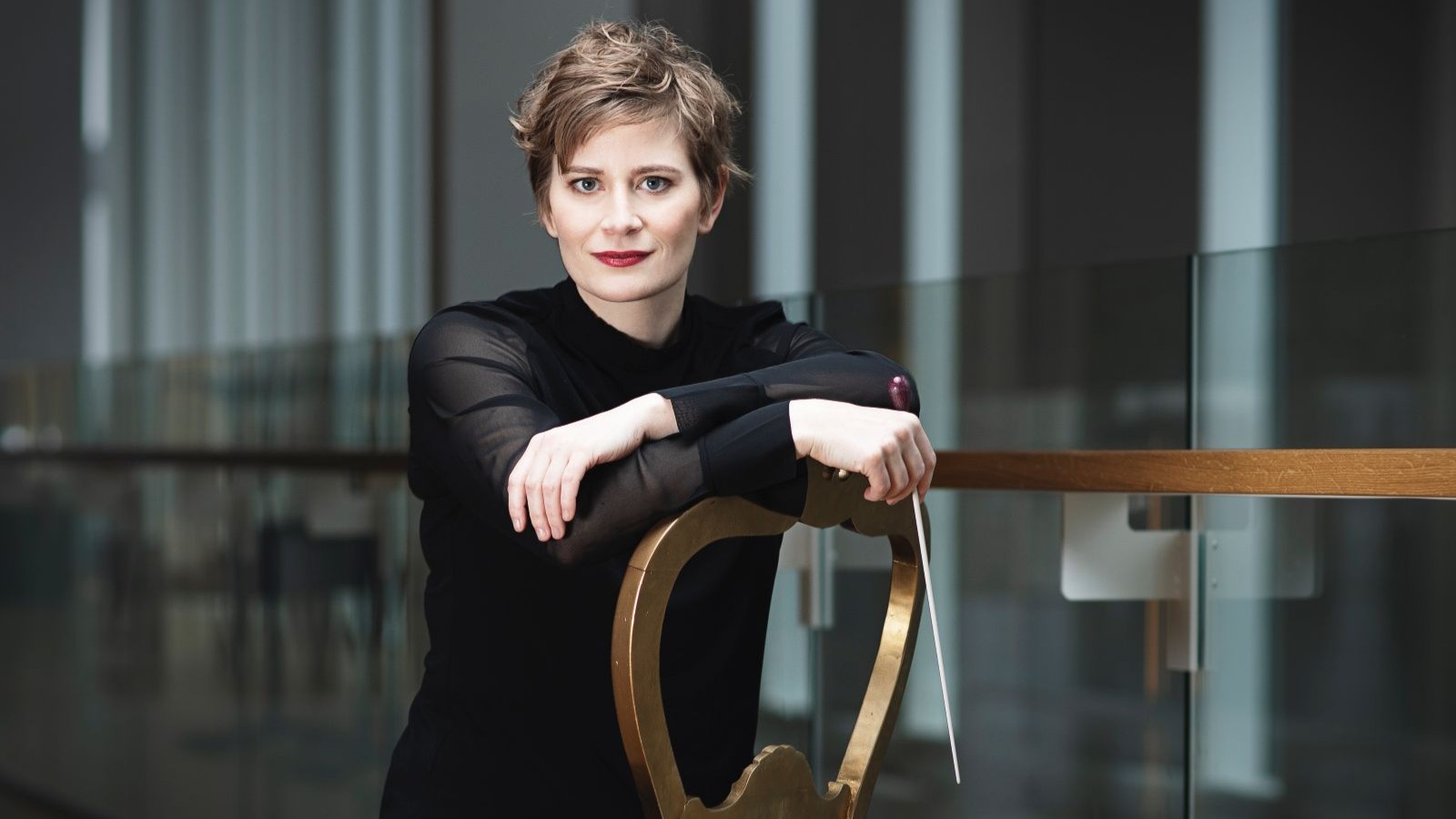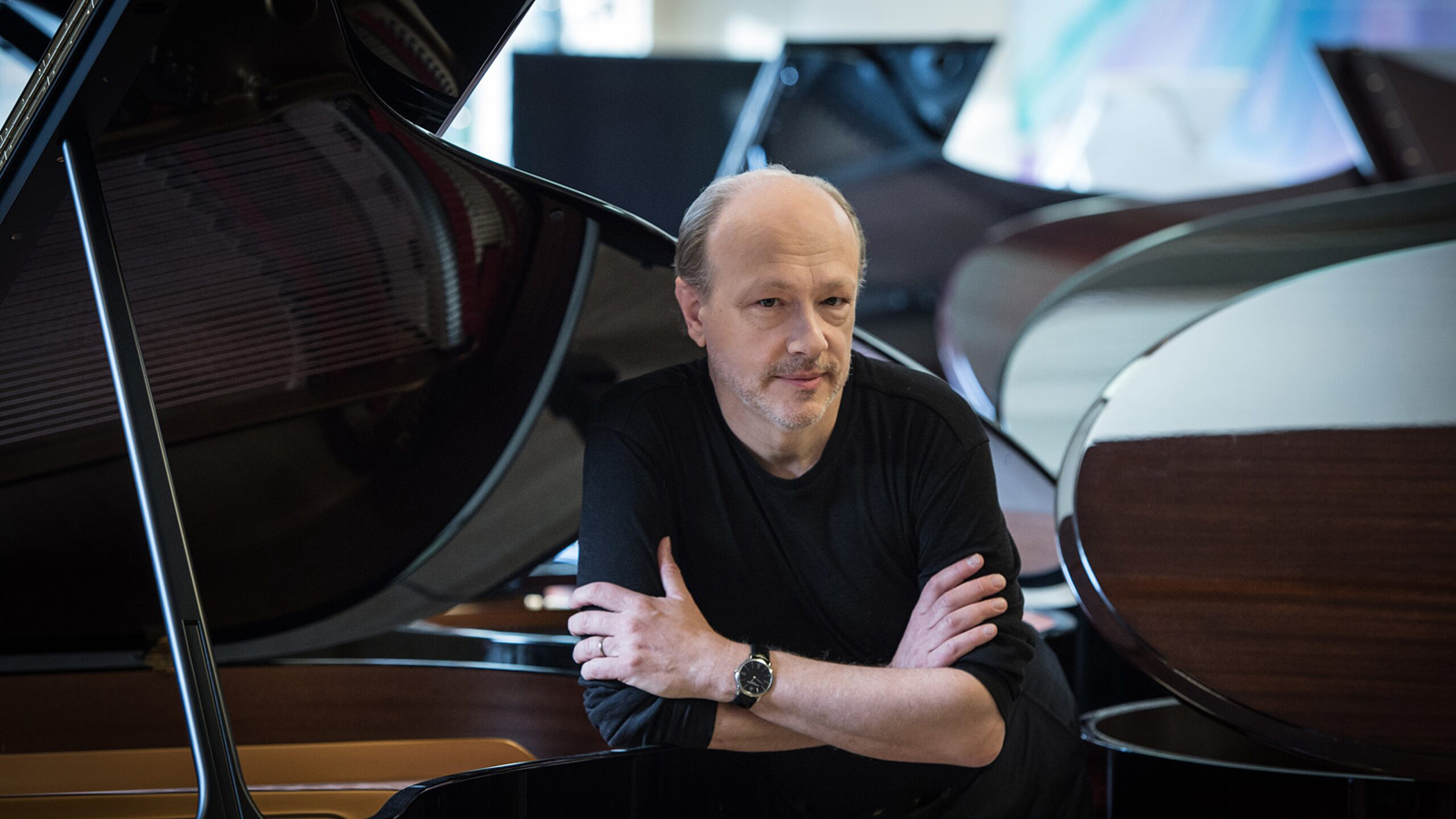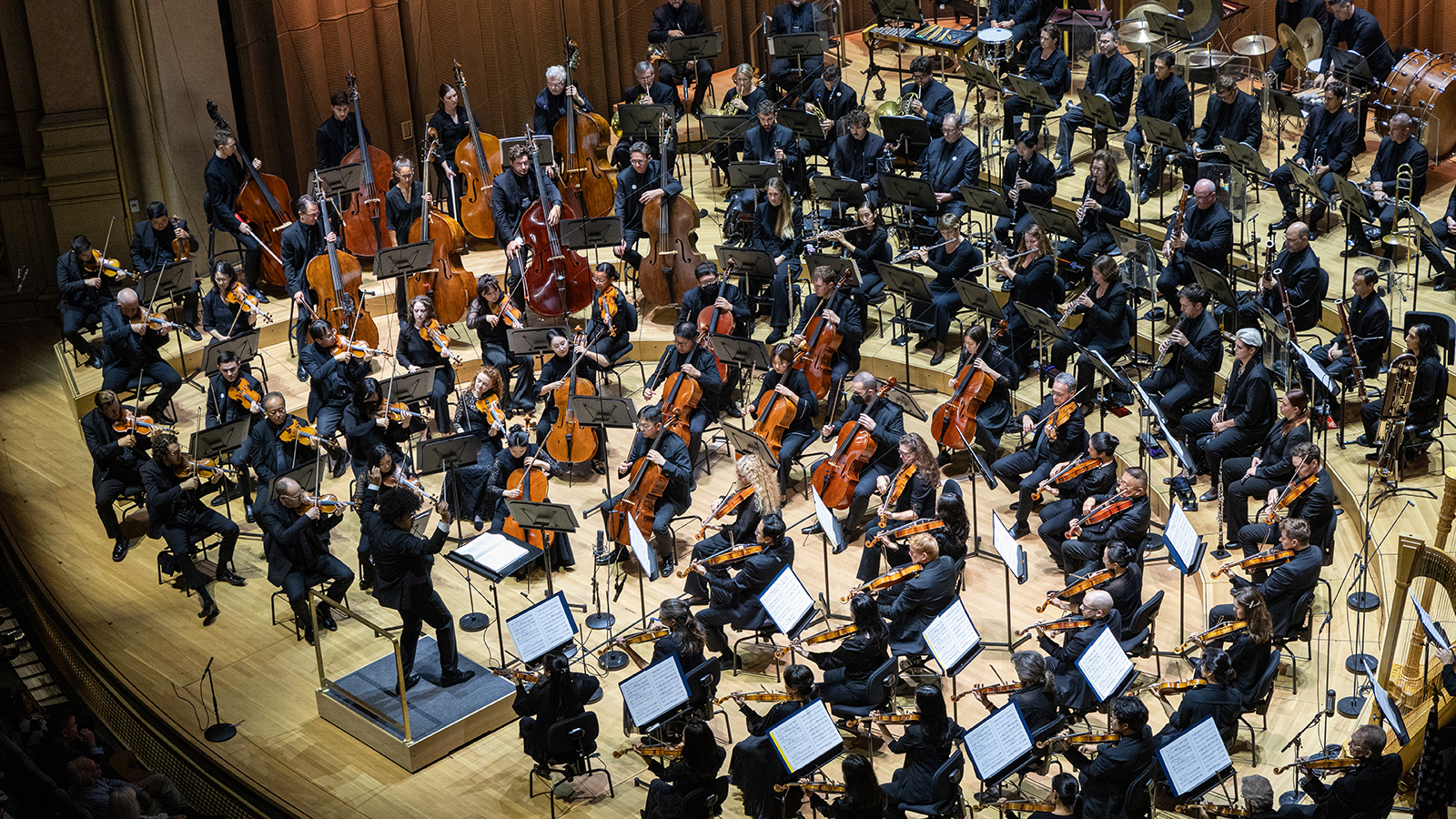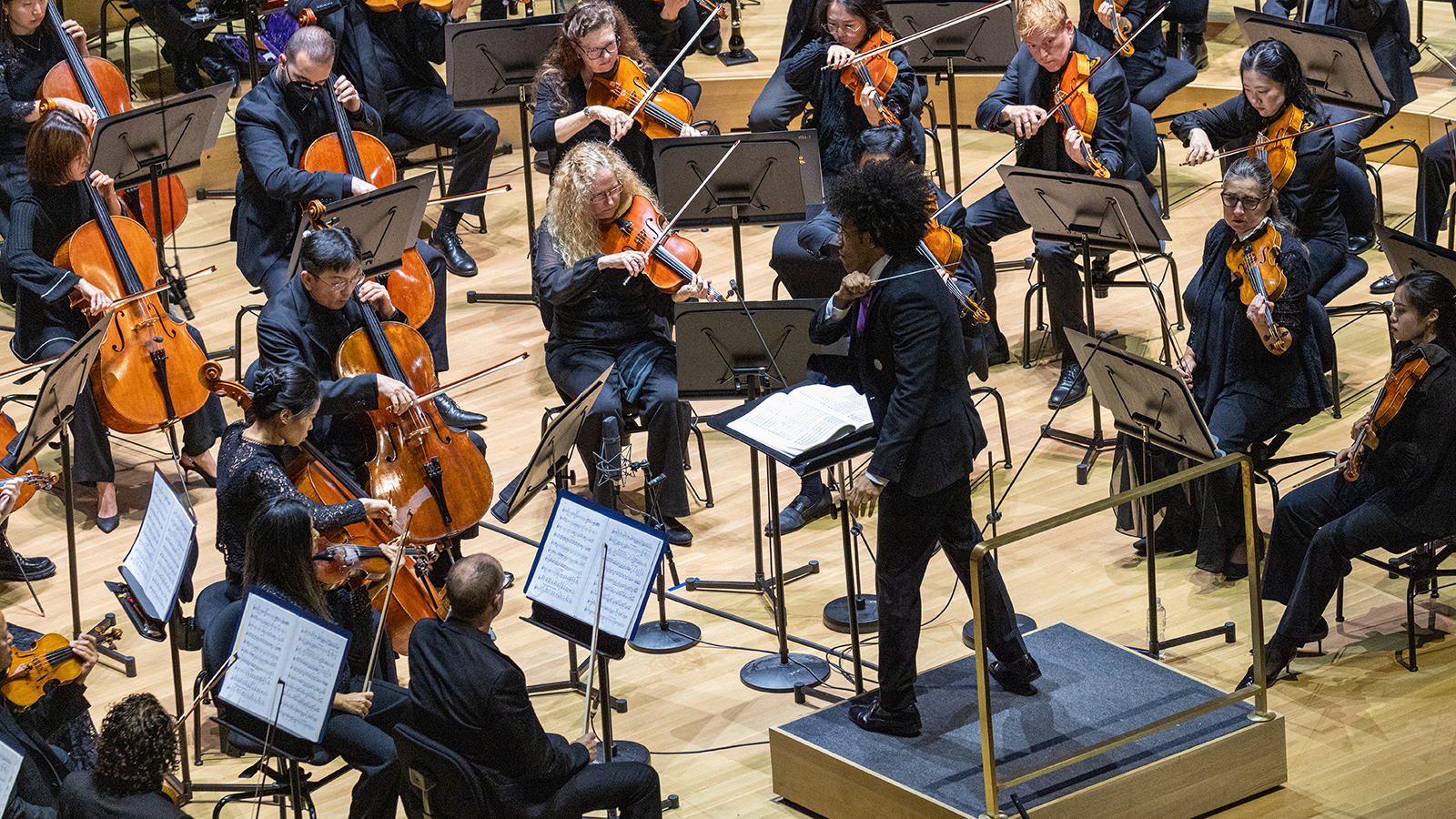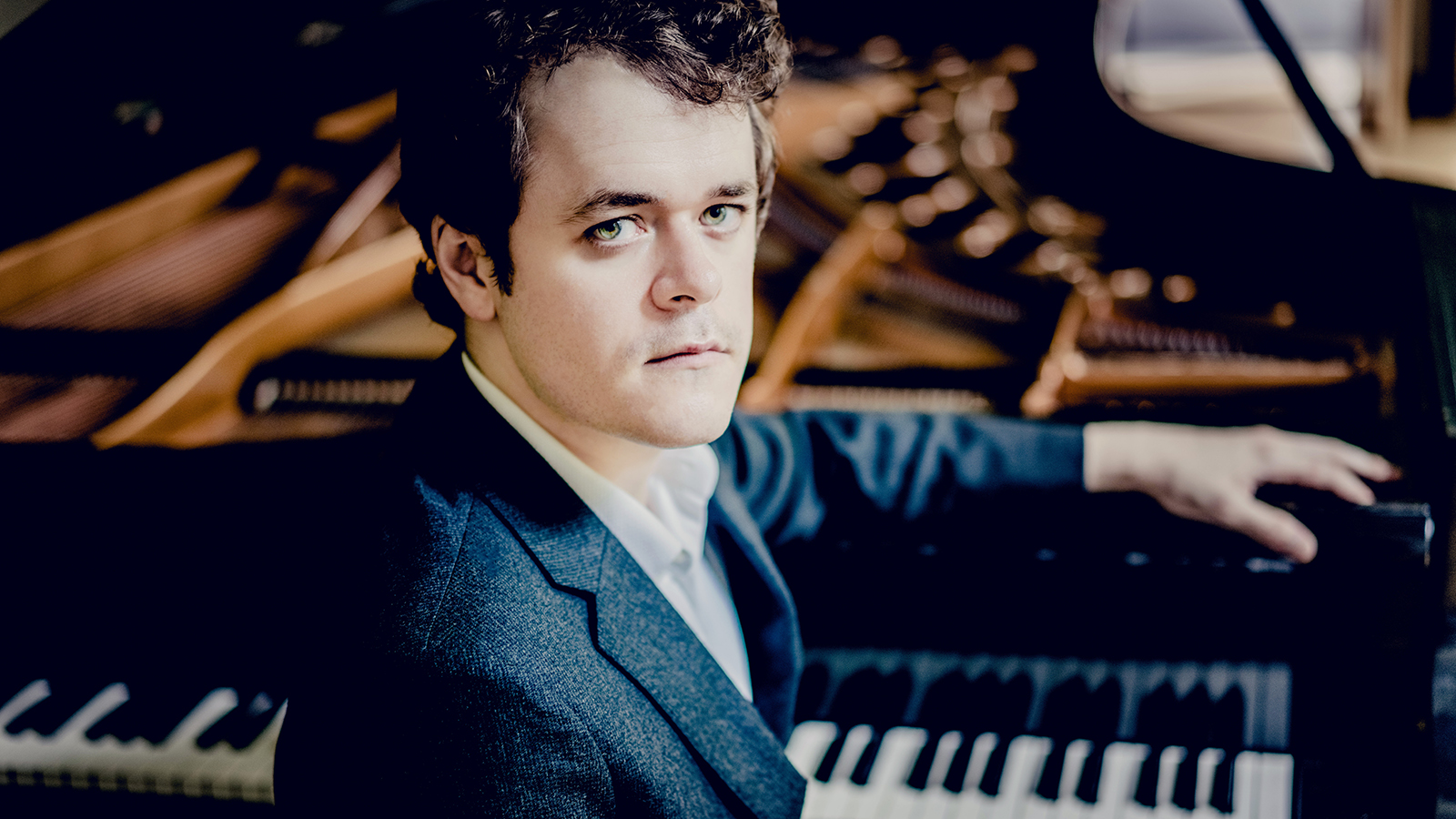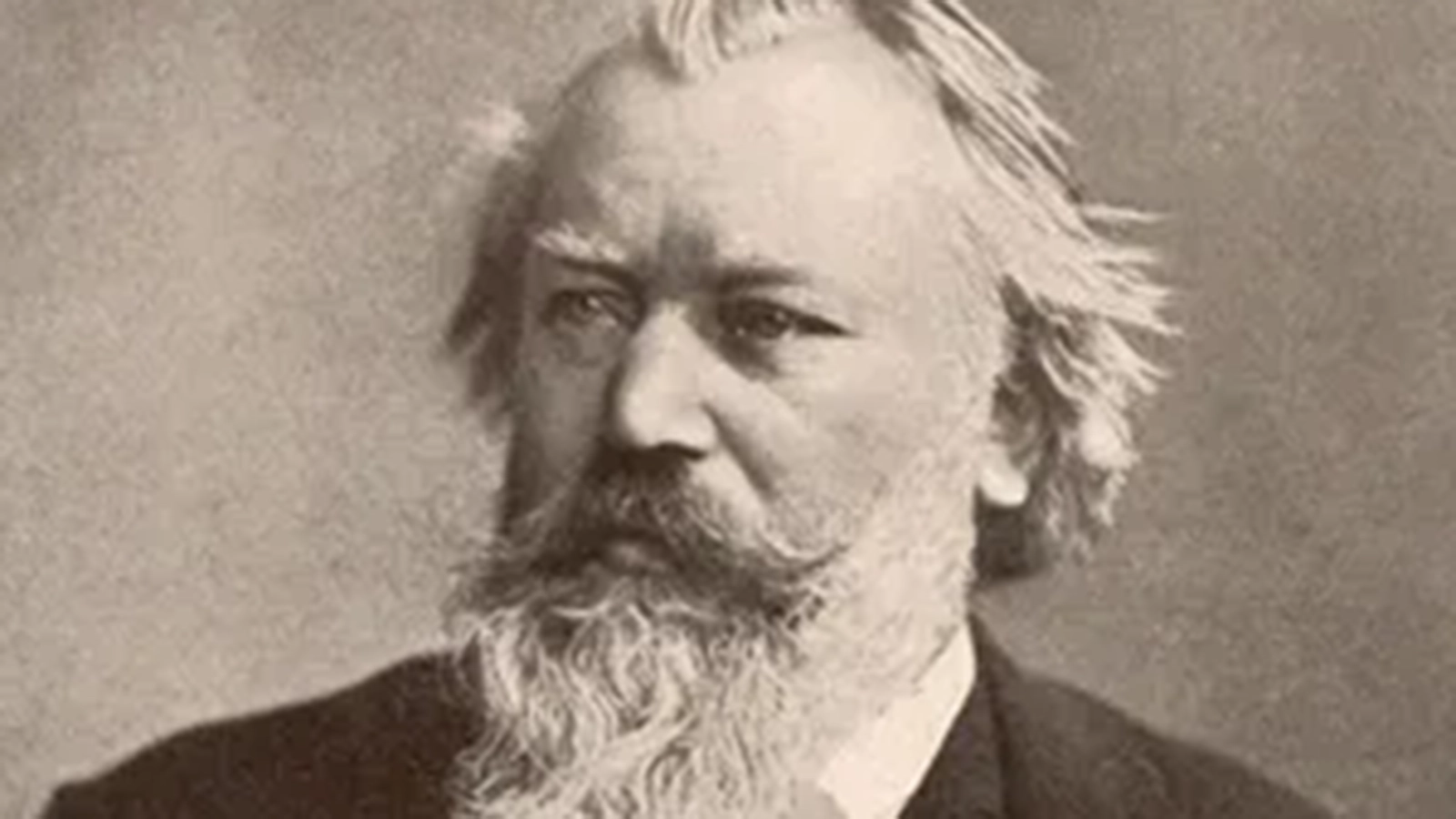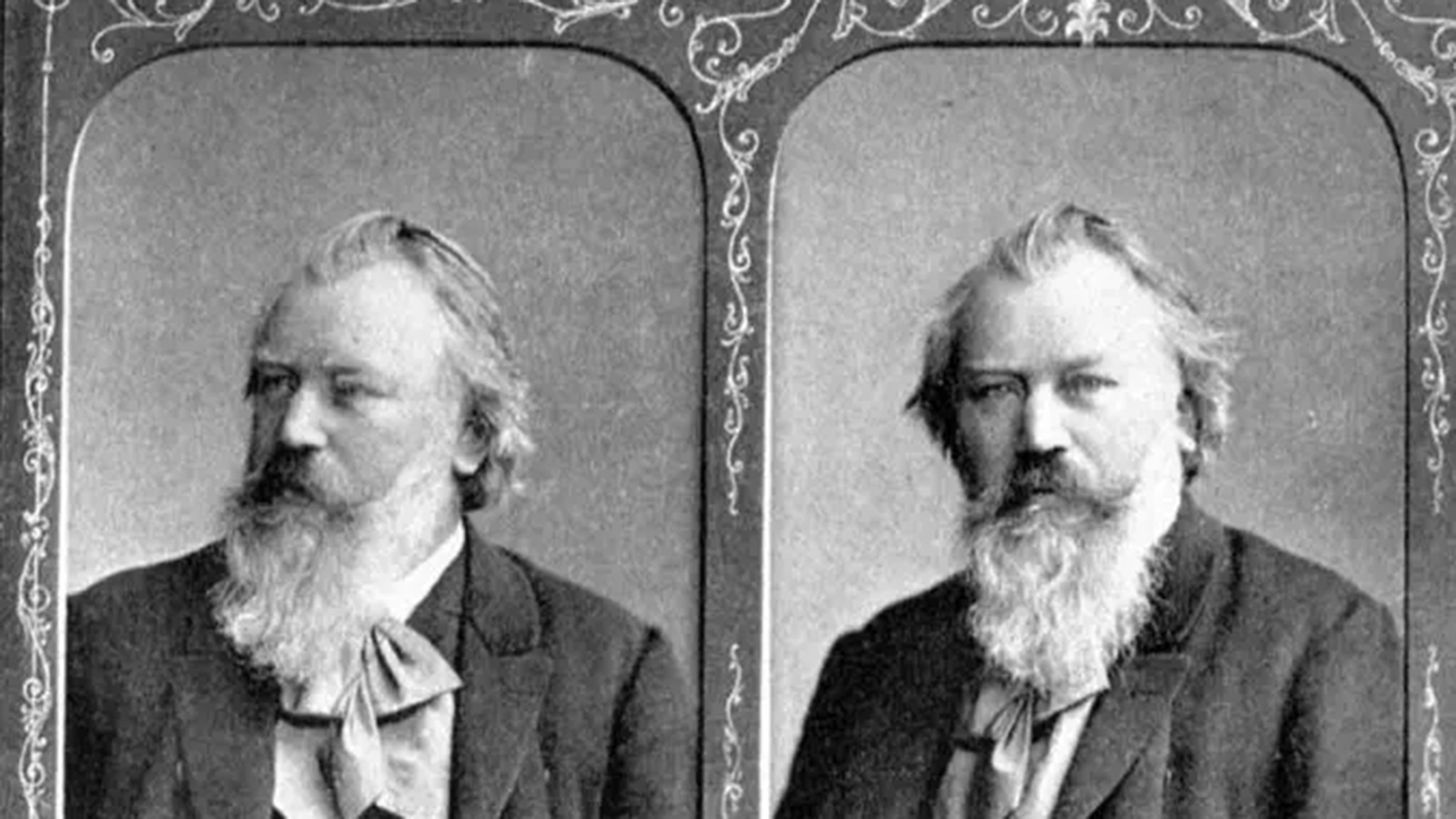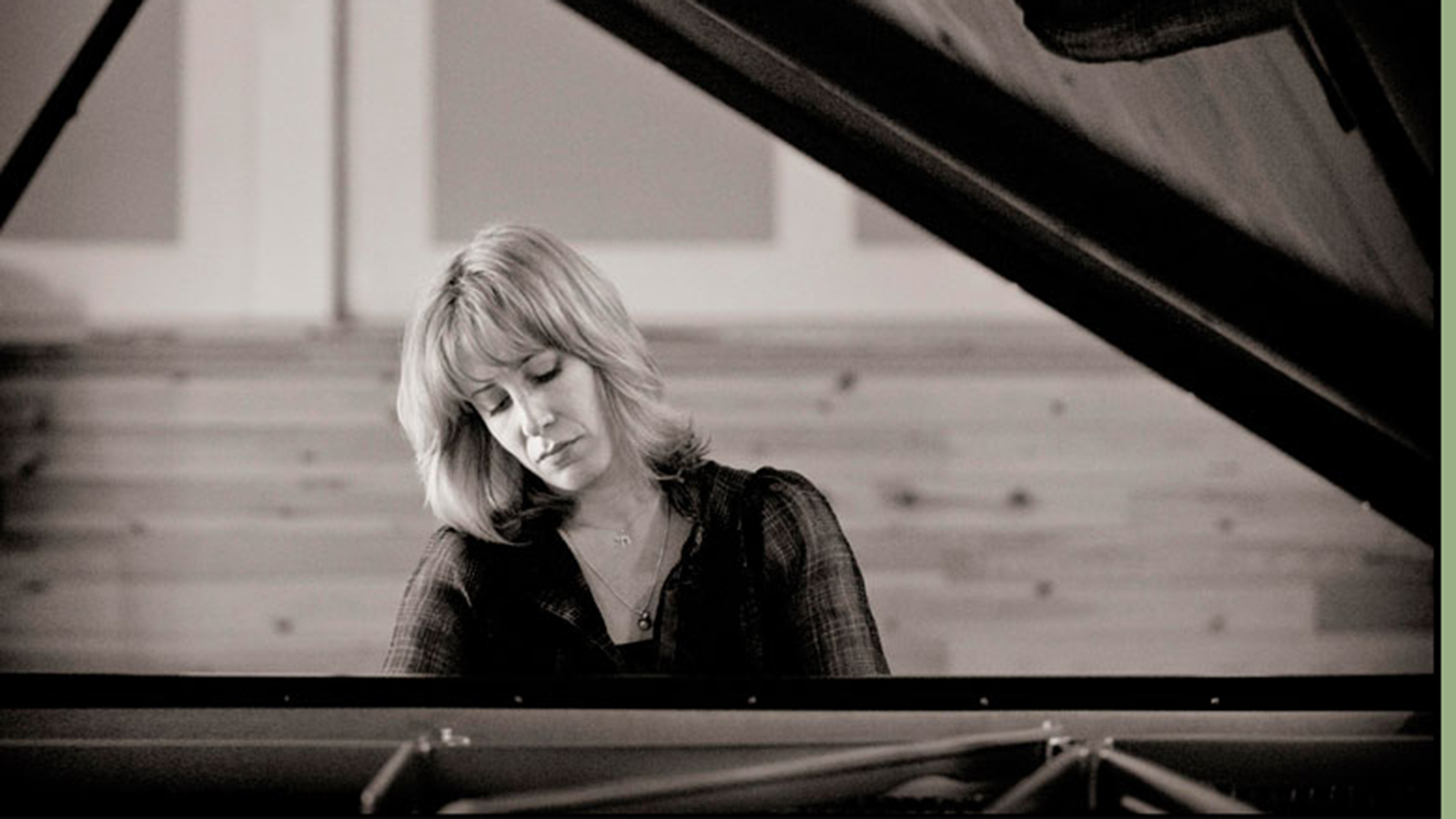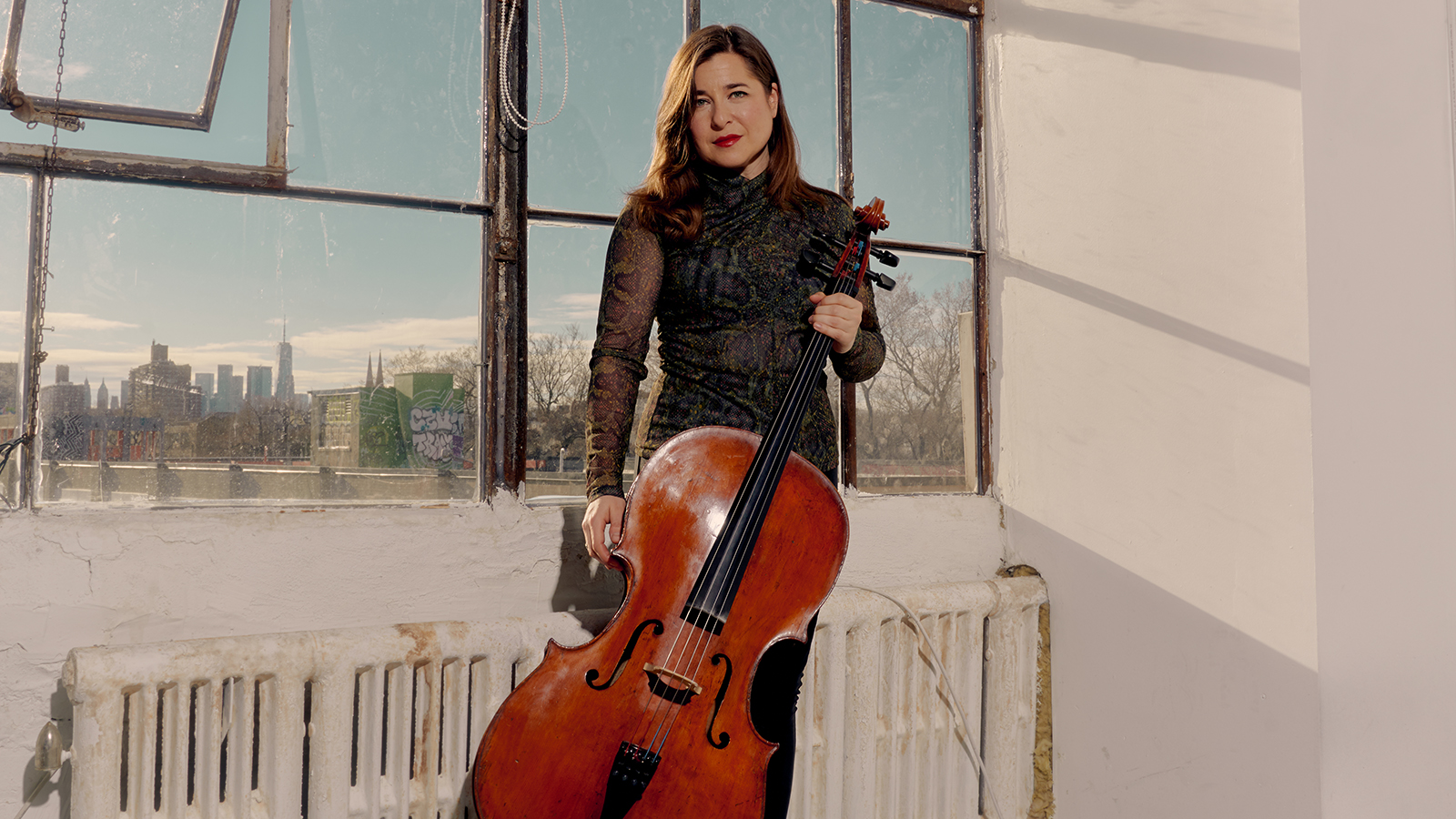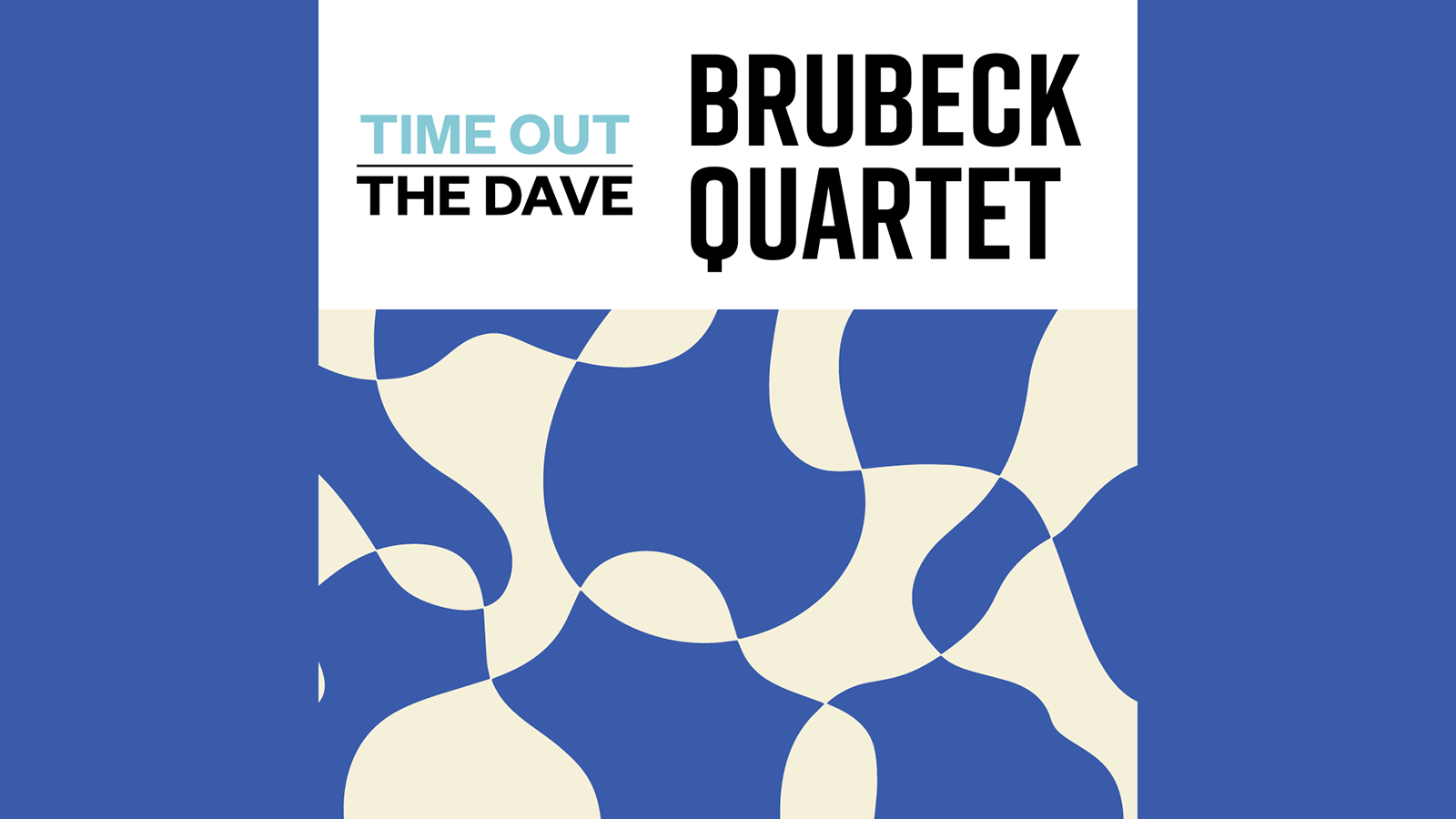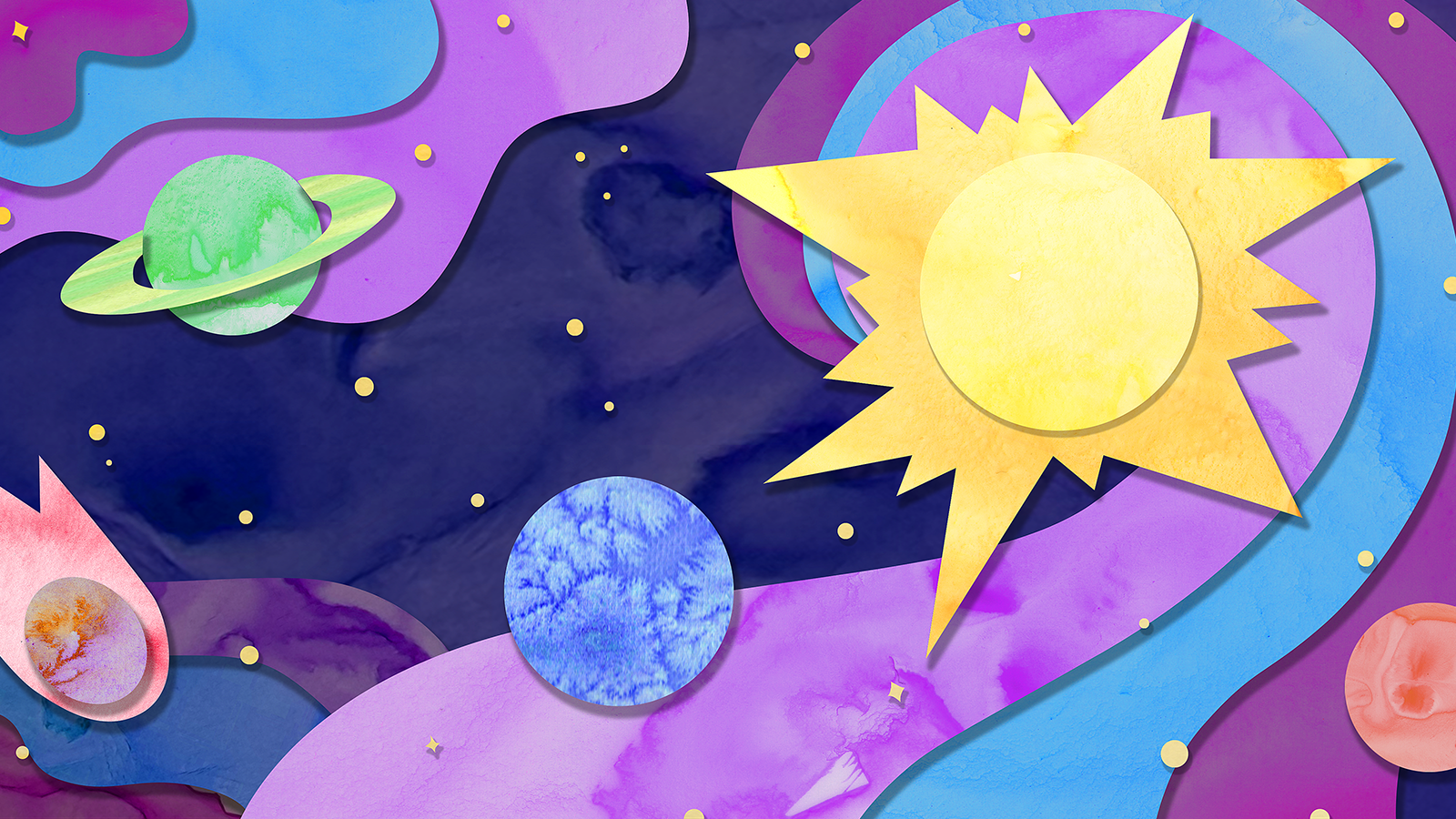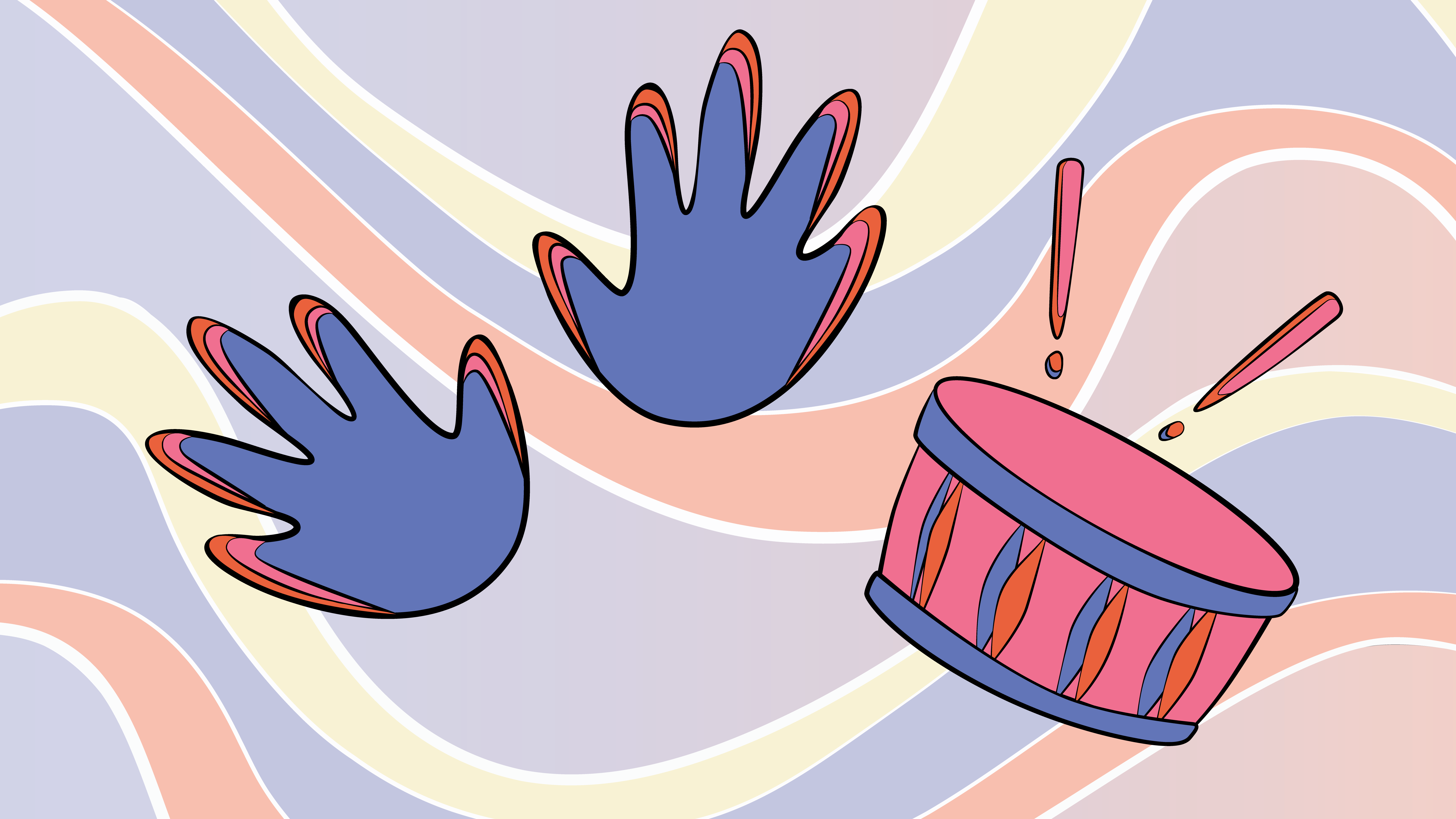Our prime "begin your weekend" series of 10 Friday nights of classical music at Jacobs Music Center, including Holst's The Planets, Brahms' A German Requiem, Beethoven's "Emperor" Piano Concerto, Strauss' immortal Also sprach Zarathustra and more!
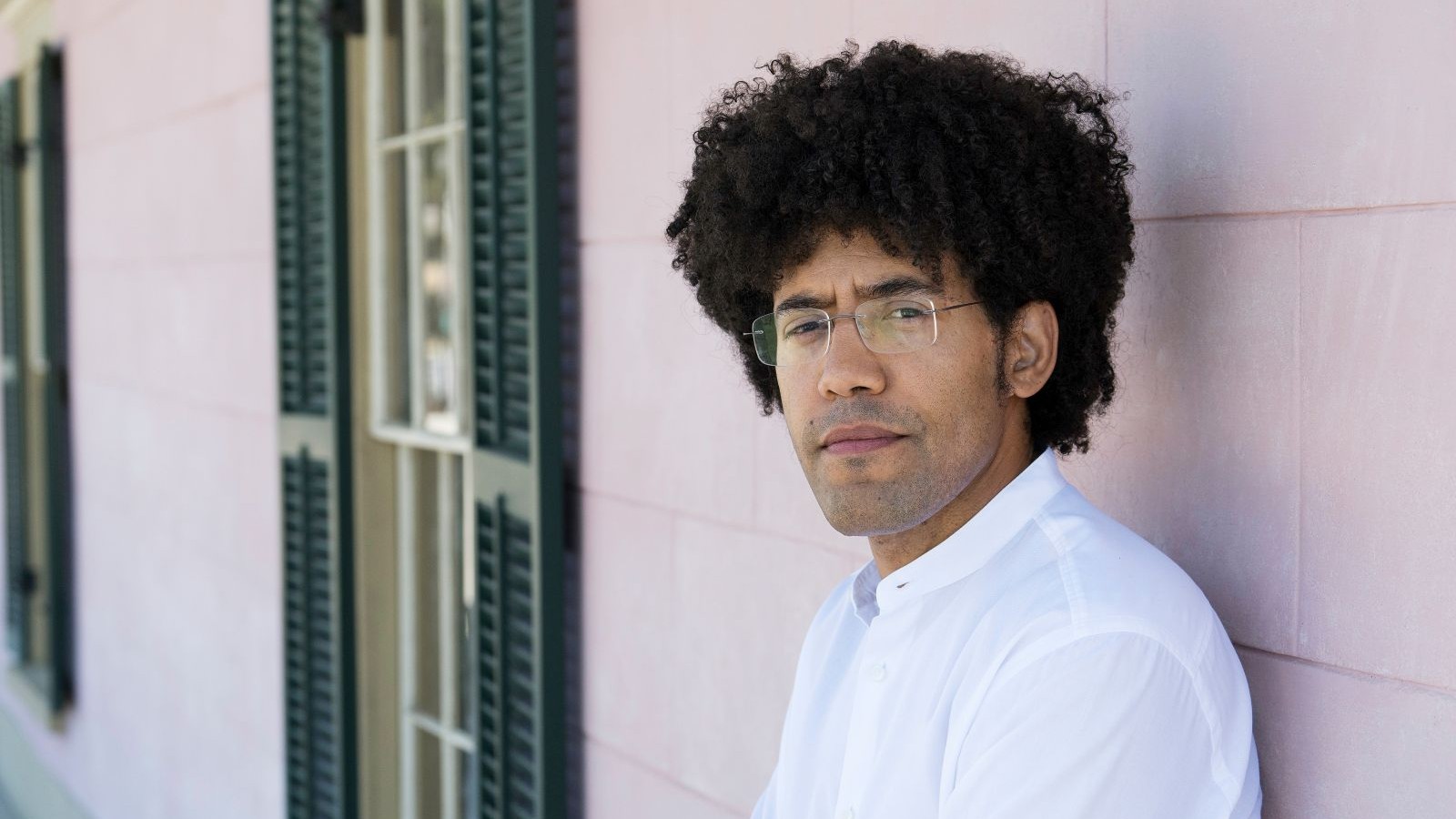
French Fairytales: Ravel and Debussy
Friday, October 3, 7:30 PM
Rafael Payare, conductor
Isabel Leonard, mezzo-soprano
Liv Redpath, soprano
Lindsay Ammann, mezzo-soprano
Meridian Prall, mezzo-soprano
Tasha Hokuao Koontz, soprano
Angel Raii Gomez, tenor
Elliot Madore, baritone
Christian Simmons, bass-baritone
San Diego Symphony Chorus
Maurice Boyer, Chorus Master
San Diego Children’s Choir
Ruthie Millgard, Artistic Director
San Diego Symphony Orchestra
Directed by Gerard McBurney
Projection Design by Mike Tutaj
Lighting Design by Paul Miller
Illustrations by Joe Fournier
Creative Producer is Jonathan Gilmer
DEBUSSY: The Joyful Isle (L'isle joyeuse), L. 106
DEBUSSY (orch. Caplet): The Box of Toys (La boîte à joujoux)
RAVEL: The Child and the Magical Spells: a lyric fantasy in two scenes (L'enfant et les sortilèges: Fantaisie lyrique en deux parties)
A glorious and theatrical celebration of the light and enchantment of France and French music, beginning with Debussy’s evocation of a journey to a mysterious island of love, and his witty and charming ballet score for children about the adventures of a box of toys. The program ends with a brilliantly colorful and delightful semi-staging of Ravel’s immortal and much-loved comic fantasy about a naughty child whose toys come to life to punish him.

Music of the Heavens: Holst’s Planets
Friday, October 17, 7:30 PM
Gemma New, conductor
Geneva Lewis, violin
Women of the San Diego Master Chorale
San Diego Symphony Orchestra
LERA AUERBACH: Icarus
VAUGHAN WILLIAMS: The Lark Ascending
HOLST: The Planets, Op. 32
A concert about the skies above us, beginning with Lera Auerbach’s cinematic description of the Ancient Greek mythological hero Icarus who killed himself by flying too close to the sun, followed by Ralph Vaughan Williams’s most popular piece, The Lark Ascending, a miniature violin concerto in which the soloist represents a tiny skylark on a spring day, flying higher and higher into the heavens and pouring out their love in cascades of folk-inspired melody. The concert ends with Gustav Holst’s evergreen and spectacular orchestral suite The Planets, describing the seven planets of ancient astrology, each with their own mysterious properties which shape our human lives and characters.

Where the Shining Trumpets Blow: Payare Leads Bruckner No. 4
Friday, November 7, 7:30 PM
Rafael Payare, conductor
Matthias Goerne, baritone
San Diego Symphony Orchestra
MAHLER: Selections from The Boy's Magical Horn (Des Knaben Wunderhorn)
BRUCKNER: Symphony No. 4, “Romantic” in E-flat Major, WAB 104
Few literary works had as significant an influence throughout the 19th century as The Boy's Magical Horn (Des Knaben Wunderhorn); its mix of everyday experience and the supernatural and bizarre were a perfect match for the Romantic movement. Mahler, one of the greatest songwriters of all time, used these texts as the basis for his own creation, evoking the lives and feelings of ordinary people in extraordinary times.
Bruckner’s spacious symphonies are filled with images of the countryside and high mountains of his native Austria; his Symphony No. 4 “Romantic” is especially loved for its magnificent writing for the horns, using these instruments to suggest wild huntsmen riding across a landscape.
Gustav Mahler was one of the greatest songwriters of all time, his beautiful melodies evoking the lives and feelings of ordinary people in extraordinary times. Mahler’s much-loved teacher was Anton Bruckner whose gloriously spacious symphonies are filled with images of the green countryside and high mountains of his native Austria.
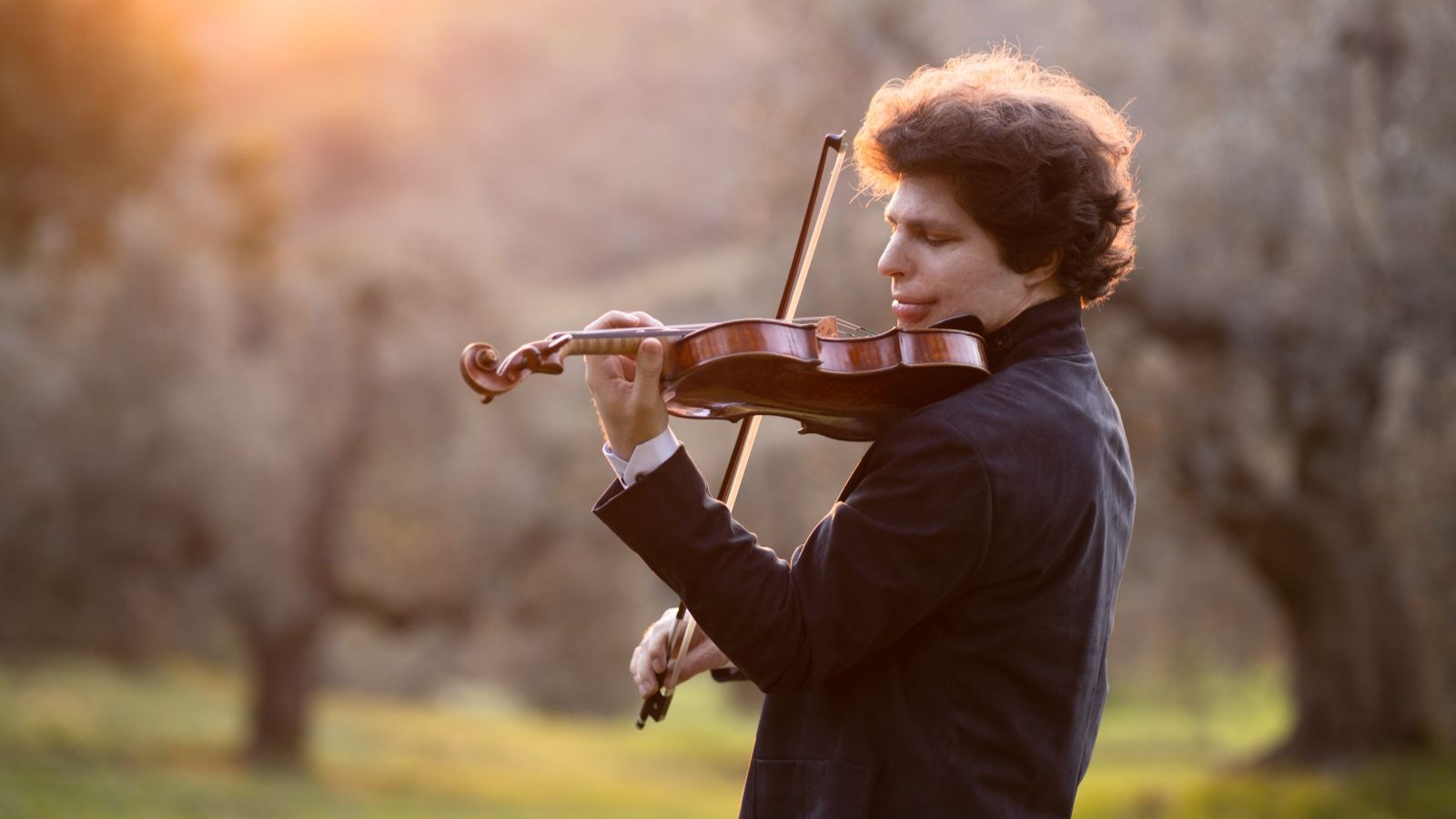
Tales of Enchantment: Hadelich Plays Sibelius
Friday, November 14, 7:30 PM
Rafael Payare, conductor
Augustin Hadelich, violin
San Diego Symphony Orchestra
MENDELSSOHN: The Hebrides (Fingal’s Cave), Op. 26
SIBELIUS: Violin Concerto in D minor, Op. 47
SCHUBERT: Symphony No. 9 in C Major, D 944, "The Great"
From Schubert in the early 19th century to Sibelius 100 years later, the Romantic composers were fascinated by the strange and the exotic, by the unfamiliar and the otherworldly. Mendelssohn travelled to the remote Atlantic islands of Scotland where he was inspired to write his Hebrides overture, mimicking the sound of the sea and the wailing of ancient bagpipes. In his violin concerto, Sibelius caught the incantations of Finnish folk music and the wailing of wind in the northern forests. And Schubert’s last and greatest symphony was considered so long and so strange by his contemporaries, it lay unperformed for years. Now it is one of the central works of Western classical music. As Robert Schumann wrote, after its first performance: “This symphony opens an entirely new world to us, producing such an effect on us as none has produced since Beethoven”.
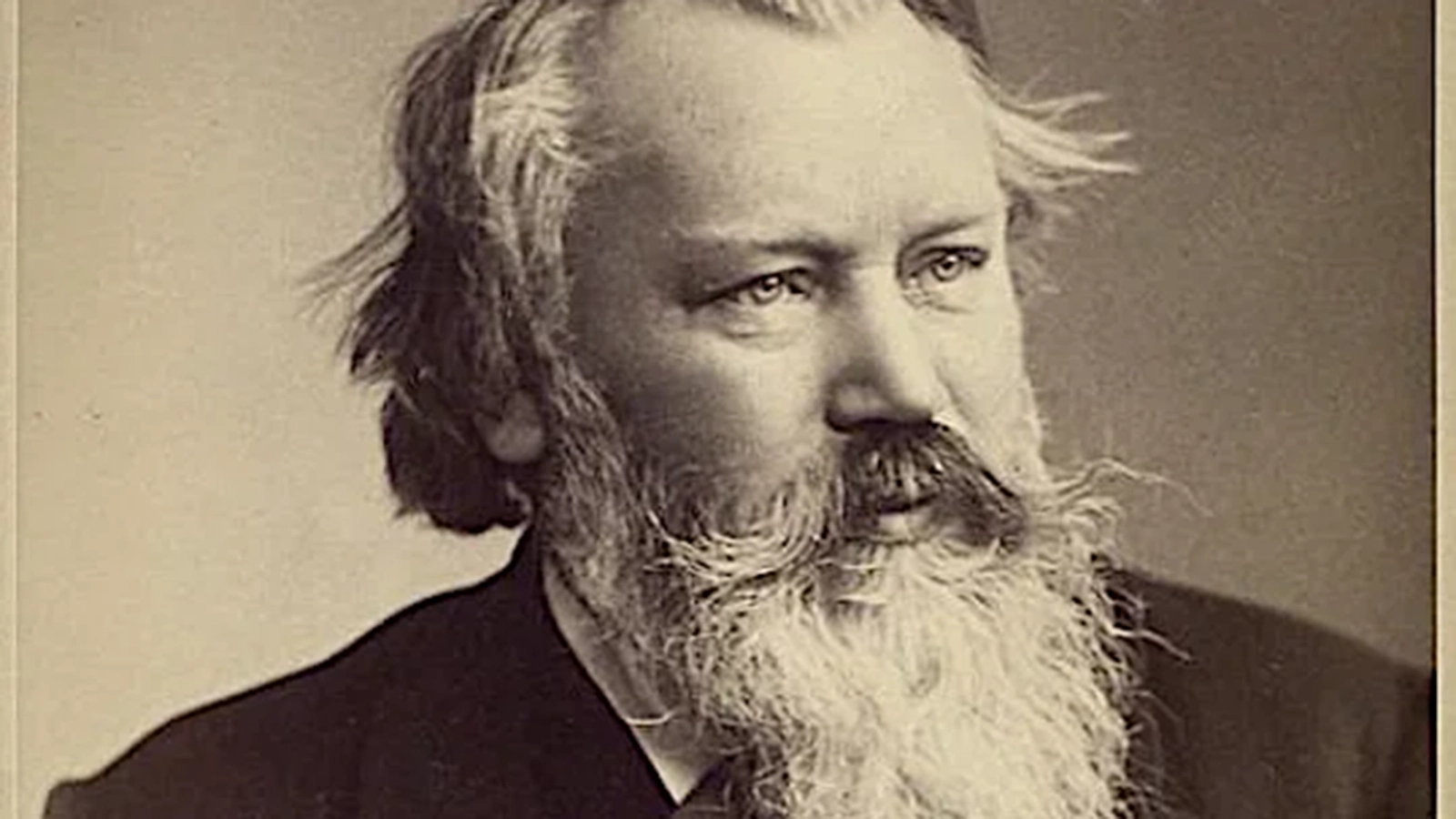
Brahms Festival: A German Requiem
Friday, February 27, 7:30 PM
Rafael Payare, conductor
Julie Boulianne, soprano
Michael Sumuel, bass-baritone
San Diego Symphony Chorus
San Diego Symphony Orchestra
BRAHMS: A German Requiem (Ein deutsches Requiem), Op. 45
Brahms is not only one of the most famous and cherished composers in all of 19th century music, but an artist of rich and wonderful contradictions. A musical architect of incredible intellectual skill, he wrote music that tugs instinctively at every human heart. Anyone can listen it and be deeply moved and captivated by it, but each of us will always find that there is more and more to discover in it.
Brahms, in a word, is a whole world of feelings and of melody.
This San Diego festival is a rare occasion, bringing together some of his best-loved pieces – his four symphonies, his violin concerto and his ravishingly beautiful German Requiem – so that we can listen to them all in a single breath. Don’t miss this opportunity to take a deep dive into one of the greatest musical imaginations that ever lived!
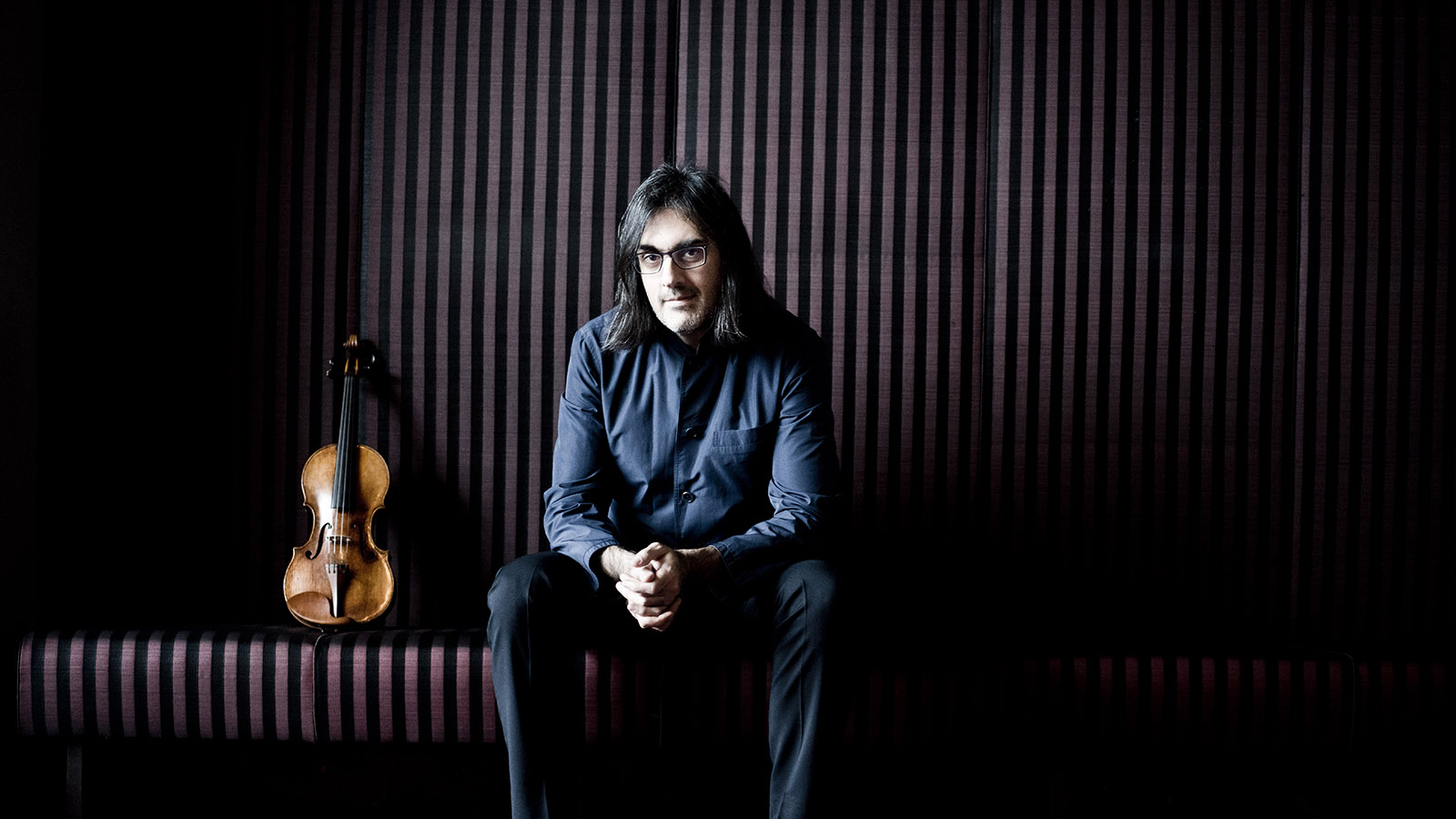
Brahms Festival: Violin Concerto & Symphony No. 4
Friday, March 6, 7:30 PM
Rafael Payare, conductor
Leonidas Kavakos, violin
San Diego Symphony Orchestra
BRAHMS: Violin Concerto in D Major, Op. 77
BRAHMS: Symphony No. 4 in E minor, Op. 98
Brahms is not only one of the most famous and cherished composers in all of 19th century music, but an artist of rich and wonderful contradictions. A musical architect of incredible intellectual skill, he wrote music that tugs instinctively at every human heart. Anyone can listen it and be deeply moved and captivated by it, but each of us will always find that there is more and more to discover in it.
Brahms, in a word, is a whole world of feelings and of melody.
This San Diego festival is a rare occasion, bringing together some of his best-loved pieces – his four symphonies, his violin concerto and his ravishingly beautiful German Requiem – so that we can listen to them all in a single breath. Don’t miss this opportunity to take a deep dive into one of the greatest musical imaginations that ever lived!
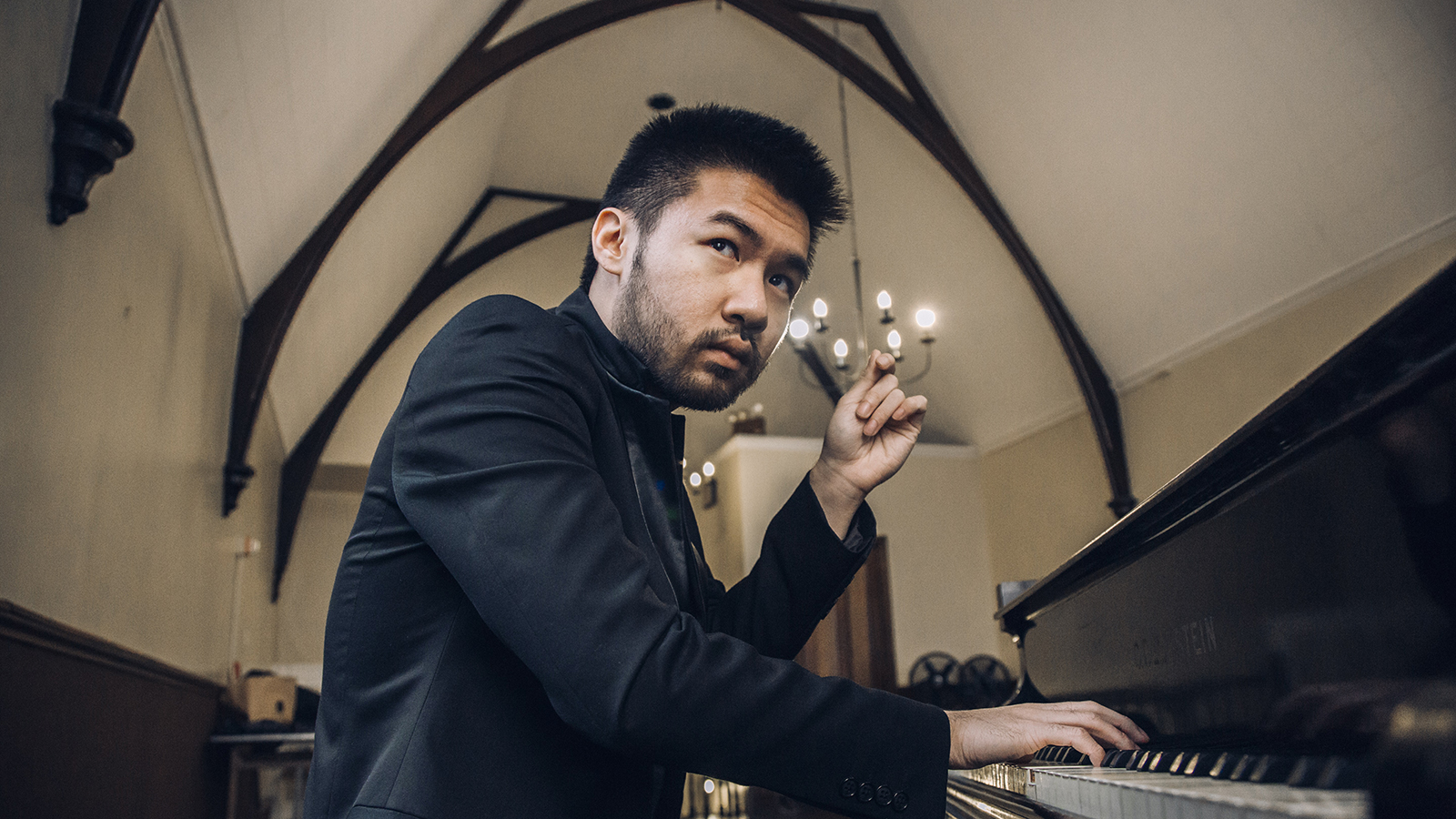
Journeys to California: Rachmaninoff Symphony No. 3
Friday, April 10, 7:30 PM
Robert Spano, conductor
Conrad Tao, piano
San Diego Symphony Orchestra
ADAM SCHOENBERG: Cool Cat
JOHN ADAMS: Century Rolls
RACHMANINOFF: Symphony No. 3 in A minor, Op. 44
An exuberant celebration of music by three composers, all of whom came from elsewhere to live in California. The youngest, Massachusetts-born Adam Schoenberg, is famous for his ability to meld popular idioms into energetic pieces for classical audiences and Cool Cat is no exception. This delightful fanfare of an overture celebrates the life of P-22, the world-famous mountain lion who lived for a decade in the hills above Los Angeles. John Adams, one of the most renowned American composers, wrote his piano concerto Century Rolls in the 1990s as a celebration of the great age of American player-piano recordings a century ago by artists such as Jelly Roll Morton and Gershwin. Russian-born Rachmaninoff himself spent much of the last quarter century of his life in the US, becoming a citizen and owning homes in New York and Los Angeles. Rachmaninoff was a huge admirer of American popular music and in the last movement of his Third Symphony we can hear his delight in Hollywood film-music and especially the movies of Fred Astaire and Ginger Rogers.

A Feast of Beethoven
Friday, April 24, 7:30 PM
Trevor Pinnock, conductor
Alexandra Dovgan, piano
San Diego Symphony Orchestra
BEETHOVEN: Coriolan Overture Op. 62
BEETHOVEN Piano Concerto No. 5, “Emperor”
BEETHOVEN Symphony No. 7 in F Major, Op. 68
Trevor Pinnock, one of the great masters of Baroque and Classical music in our age, and Alexandra Dovgan, a young pianist already celebrated across the world for the majesty and beauty of her playing, join the Orchestra together for the first time for a glorious all-Beethoven program, filled with high drama, hope and nobility. After the tragic grandeur of the Coriolan Overture come two of Beethoven’s greatest and most uplifting masterpieces: the “Emperor” Concerto and the Seventh Symphony, both pieces of overwhelming power and invention.
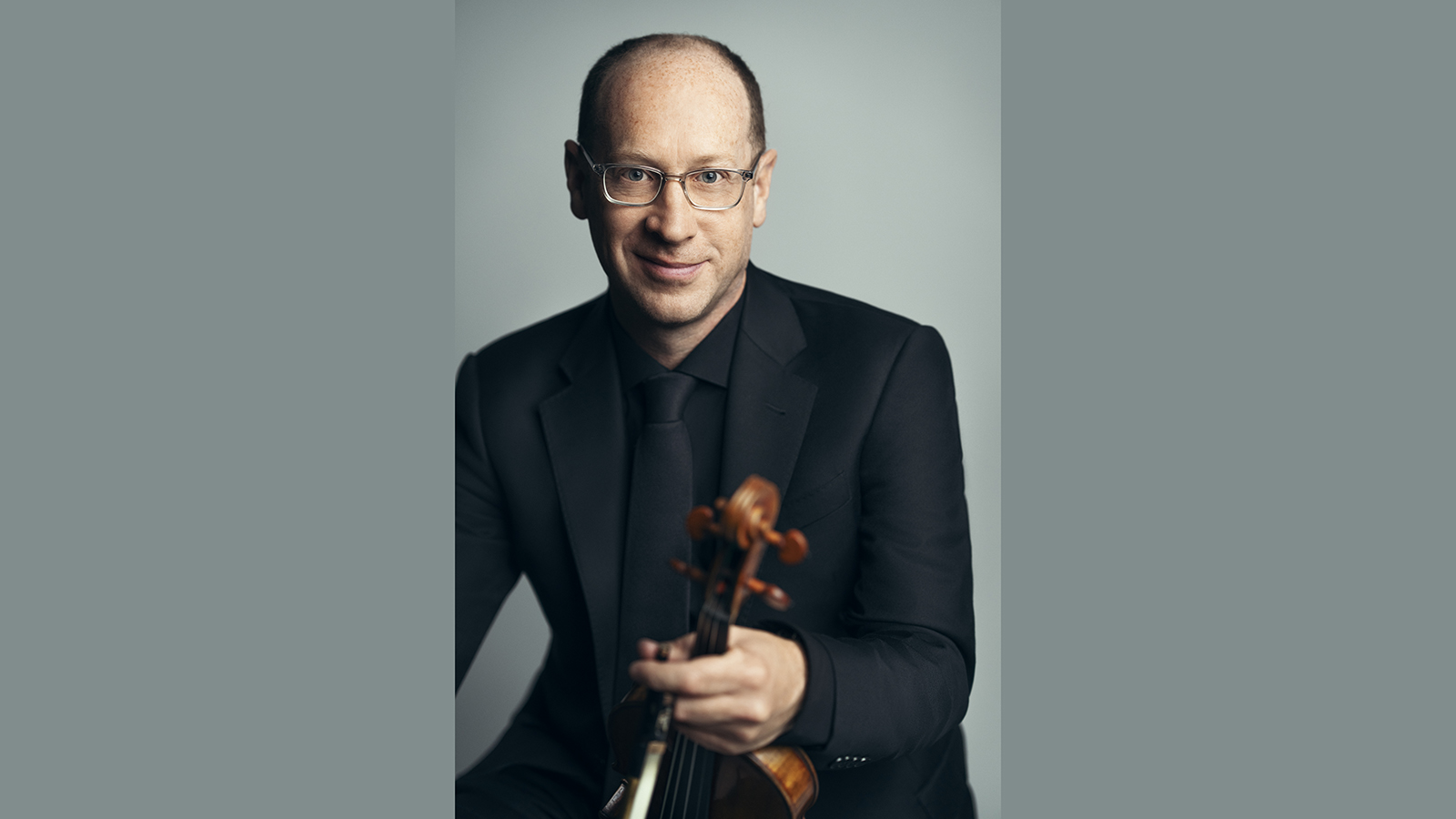
Folk Auras: Thayer Plays Berg Violin Concerto
Friday, May 15, 7:30 PM
Rafael Payare, conductor
Jeff Thayer, violin
San Diego Symphony Orchestra
JIMMY LÓPEZ: Perú Negro
BERG: Violin Concerto
MENDELSSOHN: Symphony No. 3, “Scottish” in A minor, Op. 56, MWV N 18
Three works inspired in very different ways by folk music and the mix of different cultures. Perú Negro (Black Peru), by San Diego Symphony’s Composer-in-Residence Jimmy López, was composed in 2012, and in the words of the composer “showcases my native country’s Afro-Peruvian heritage” while celebrating the exuberant fusion of African and Latin elements in the popular music of his native land. Alban Berg’s last completed work, his mystical Violin Concerto, was written in 1935 “to the memory of an angel”. The angel was Manon, the daughter of Alma Mahler (by her second husband) who had died a few months earlier at the age of 18. Berg includes in his concerto a beautiful folk-tune from the Southern Austrian Catholic region of Carinthia, and a haunting old German Protestant hymn-tune, which Bach had used several times. Mendelssohn’s "Scottish" Symphony, like his Hebrides Overture, was inspired by his youthful trip to Scotland where the young Berliner was overwhelmed by the feeling of a haunting and ancient culture. In his symphony we hear echoes of Scottish traditional music for bagpipes, fiddles and harps, the skipping rhythms of Scottish folk dancing, and Romantic impressions of ruined medieval castles and monasteries.
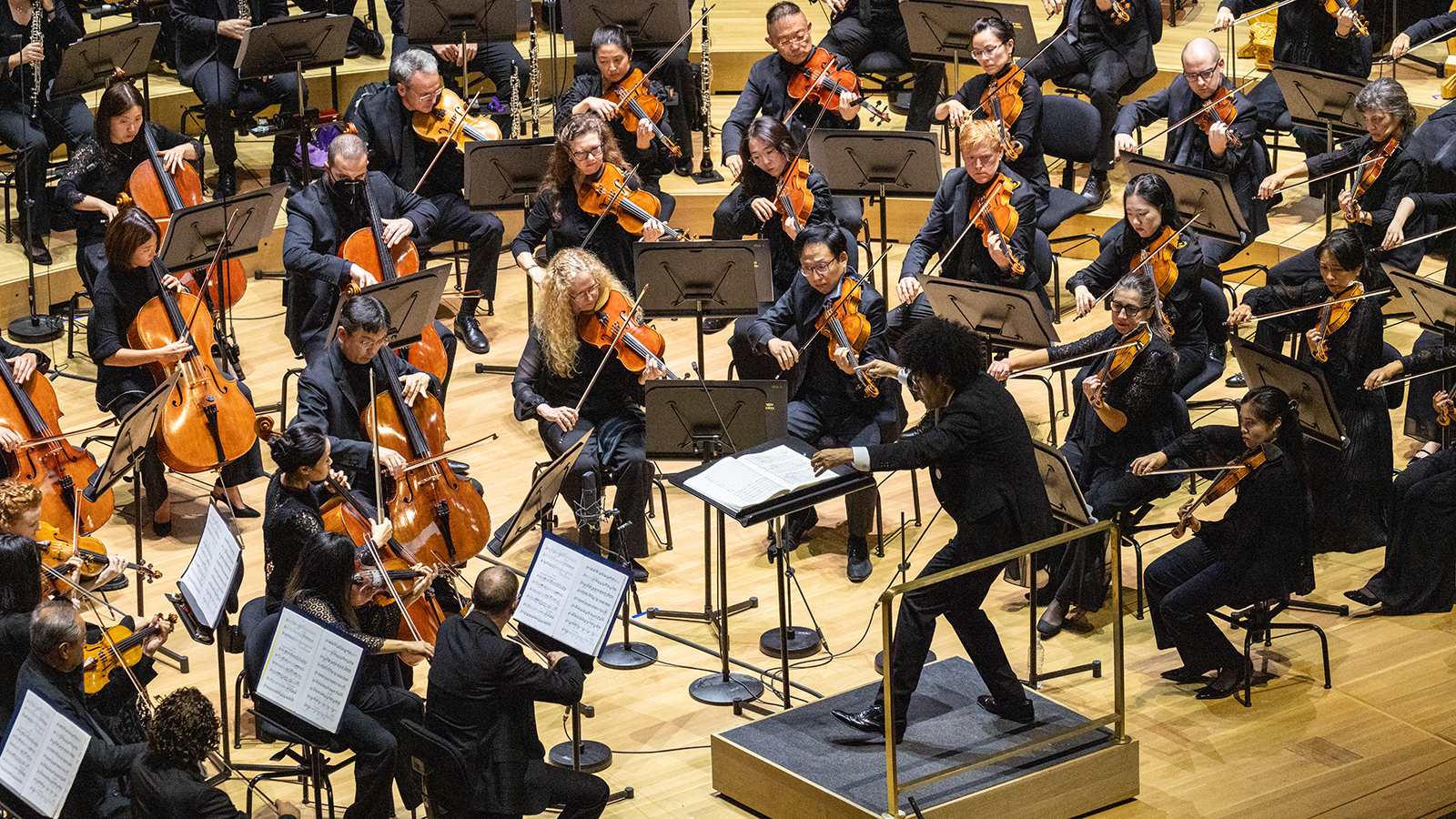
Also sprach Zarathustra & Bluebeard's Castle
Friday, May 22, 7:30 PM
Rafael Payare, conductor
Karen Cargill, mezzo-soprano
Christopher Purves, baritone
San Diego Symphony Orchestra
R. STRAUSS: Also sprach Zarathustra, Op. 30
BARTÓK: Bluebeard’s Castle
Our season ends with two of the most spectacular and orchestrally overwhelming scores from the late romantic period: Richard Strauss’s epic tone-poem Also sprach Zarathustra, inspired by Nietzsche’s account of the deep meditations of the half- mythical Persian hermit-philosopher Zoroaster; and Bartók’s dramatic fantasy Bluebeard’s Castle, based on the ancient fairy-tale about a young woman who marries a mysterious aristocrat and discovers that he has terrible secrets kept behind locked doors.
Both these magnificent works use extreme and glittering orchestral colors to represent the real colors of the world and the cosmos – dawn, sunlight, vast mountain views, sunset and the darkest night. And both are perfectly suited to our fabulous new acoustic in the Jacobs Music Center, and the beauty of the inside of our hall.


